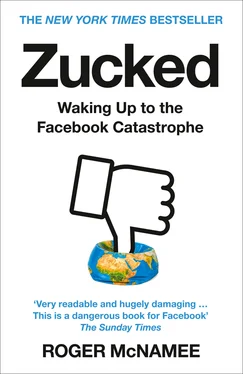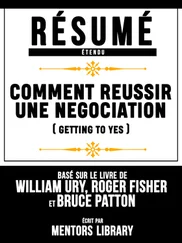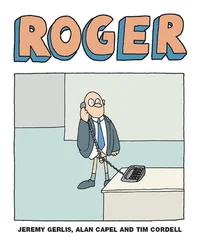1 ...6 7 8 10 11 12 ...21 I took my concerns to our other partner, Morgan Stanley, and they gave me some money to figure out the Next Big Thing in tech investing, a fund that could survive a bear market. It took two years, but Integral launched Silver Lake Partners, the first private equity fund focused on technology. Our investors shared our concerns and committed one billion dollars to the new fund.
Silver Lake planned to invest in mature technology companies. Once a tech company matured in those days, it became vulnerable to competition from startups. Mature companies tend to focus on the needs of their existing customers, which often blinds them to new business opportunities or new technologies. In addition, as growth slows, so too does the opportunity for employees to benefit from stock options, which startups exploit to recruit the best and brightest from established companies. My vision for Silver Lake was to reenergize mature companies by recapitalizing them to enable investment in new opportunities, while also replicating the stock compensation opportunities of a startup. The first Silver Lake fund had extraordinary results, thanks to three investments: Seagate Technology, Datek, and Gartner Group.
During the Silver Lake years, I got a call from the business manager of the Grateful Dead, asking for help. The band’s leader, Jerry Garcia, had died a few years before, leaving the band with no tour to support a staff of roughly sixty people. Luckily, one of the band’s roadies had created a website and sold merchandise directly to fans. The site had become a huge success, and by the time I showed up, it was generating almost as much profit as the band had made in its touring days. Unfortunately, the technology was out of date, but there was an opportunity to upgrade the site, federate it to other bands, and prosper as never before. One of the bands that showed an interest was U2. They found me through a friend of Bono’s at the Department of the Treasury, a woman named Sheryl Sandberg. I met Bono and the Edge at Morgan Stanley’s offices in Los Angeles on the morning after the band had won a Grammy for the song “Beautiful Day.” I could not have named a U2 song, but I was blown away by the intelligence and business sophistication of the two Irishmen. They invited me to Dublin to meet their management. I made two trips during the spring of 2001.
On my way home from that second trip, I suffered a stroke. I didn’t realize it at the time, and I tried to soldier on. Shortly thereafter, after some more disturbing symptoms, I found myself at the Mayo Clinic, where I learned that I had in fact suffered two ischemic strokes, in addition to something called a transient ischemic attack in my brain stem. It was a miracle I had survived the strokes and suffered no permanent impairment.
The diagnosis came as a huge shock. I had a reasonably good diet, a vigorous exercise regime, and a good metabolism, yet I had had two strokes. It turned out that I had a birth defect in my heart, a “patent foramen ovale,” basically the mother of all heart murmurs. I had two choices: I could take large doses of blood thinner and live a quiet life, or I could have open-heart surgery and eliminate the risk forever. I chose surgery.
I had successful surgery in early July 2001, but my recovery was very slow. It took me nearly a year to recover fully. During that time, Apple shipped the first iPod. I thought it was a sign of good things to come and reached out to Steve Jobs to see if he would be interested in recapitalizing Apple. At the time, Apple’s share price was about twelve dollars per share, which, thanks to stock splits, is equivalent to a bit more than one dollar per share today. The company had more than twelve dollars in cash per share, which meant investors were attributing zero value to Apple’s business. Most of the management options had been issued at forty dollars per share, so they were effectively worthless. If Silver Lake did a recapitalization, we could reset the options and align interests between management and shareholders. Apple had lost most of its market share in PCs, but thanks to the iPod and iMac computers, Apple had an opportunity to reinvent itself in the consumer market. The risk/reward of investing struck me as especially favorable. We had several conversations before Steve told me he had a better idea. He wanted me to buy up to 18 percent of Apple shares in the public market and take a board seat.
After a detailed analysis, I proposed an investment to my partners in the early fall of 2002, but they rejected it out of hand. The decision would cost Silver Lake’s investors the opportunity to earn more than one hundred billion dollars in profits.
In early 2003, Bono called up with an opportunity. He wanted to buy Universal Music Group, the world’s largest music label. It was a complicated transaction and took many months of analysis. A team of us did the work and presented it to my other three partners in Silver Lake in September. They agreed to do the deal with Bono, but they stipulated one condition: I would not be part of the deal team. They explained their intention for Silver Lake to go forward as a trio, rather than as a quartet. There had been signals along the way, but I had missed them. I had partnered with deal guys—people who use power when they have it to gain advantages where they can get them—and had not protected myself.
I have never believed in staying where I’m not wanted, so I quit. If I had been motivated by money, I would have hung in there, as there was no way they could force me out. I had conceived the fund, incubated it, brought in the first billion dollars of assets, and played a decisive role on the three most successful investments. But I’m not wired to fight over money. I just quit and walked out. I happened to be in New York and called Bono. He asked me to come to his apartment. When I got there, he said, “Screw them. We’ll start our own fund.” Elevation Partners was born.
In the long term, my departure from Silver Lake worked out for everyone. The second Silver Lake fund got off to a rocky start, as my cofounders struggled with stock picking, but they figured it out and built the firm into an institution that has delivered good investment returns to its investors.
2 2 Silicon Valley Before Facebook 3 Move Fast and Break Things 4 The Children of Fogg 5 Mr. Harris and Mr. McNamee Go to Washington 6 Congress Gets Serious 7 The Facebook Way 8 Facebook Digs in Its Heels 9 The Pollster 10 Cambridge Analytica Changes Everything 11 Days of Reckoning 12 Success? 13 The Age of Surveillance Capitalism 14 What Is to Be Done 15 What Government Can Do 16 What Each of Us Can Do Epilogue Appendix 1: Memo to Zuck and Sheryl: Draft Op-Ed for Recode Appendix 2: George Soros’s Davos Remarks: “The Current Moment in History” Bibliographic Essay Index Acknowledgments About the Author About the Publisher
Silicon Valley Before Facebook 2 Silicon Valley Before Facebook 3 Move Fast and Break Things 4 The Children of Fogg 5 Mr. Harris and Mr. McNamee Go to Washington 6 Congress Gets Serious 7 The Facebook Way 8 Facebook Digs in Its Heels 9 The Pollster 10 Cambridge Analytica Changes Everything 11 Days of Reckoning 12 Success? 13 The Age of Surveillance Capitalism 14 What Is to Be Done 15 What Government Can Do 16 What Each of Us Can Do Epilogue Appendix 1: Memo to Zuck and Sheryl: Draft Op-Ed for Recode Appendix 2: George Soros’s Davos Remarks: “The Current Moment in History” Bibliographic Essay Index Acknowledgments About the Author About the Publisher
I think technology really increased human ability .
But technology cannot produce compassion. —DALAI LAMA
The technology industry that gave birth to Facebook in 2004 bore little resemblance to the one that had existed only half a dozen years earlier. Before Facebook, startups populated by people just out of college were uncommon, and few succeeded. For the fifty years before 2000, Silicon Valley operated in a world of tight engineering constraints. Engineers never had enough processing power, memory, storage, or bandwidth to do what customers wanted, so they had to make trade-offs. Engineering and software programming in that era rewarded skill and experience. The best engineers and programmers were artists. Just as Facebook came along, however, processing power, memory, storage, and bandwidth went from being engineering limits to turbochargers of growth. The technology industry changed dramatically in less than a decade, but in ways few people recognized. What happened with Facebook and the other internet platforms could not have happened in prior generations of technology. The path the tech industry took from its founding to that change helps to explain both Facebook’s success and how it could do so much damage before the world woke up.
Читать дальше






